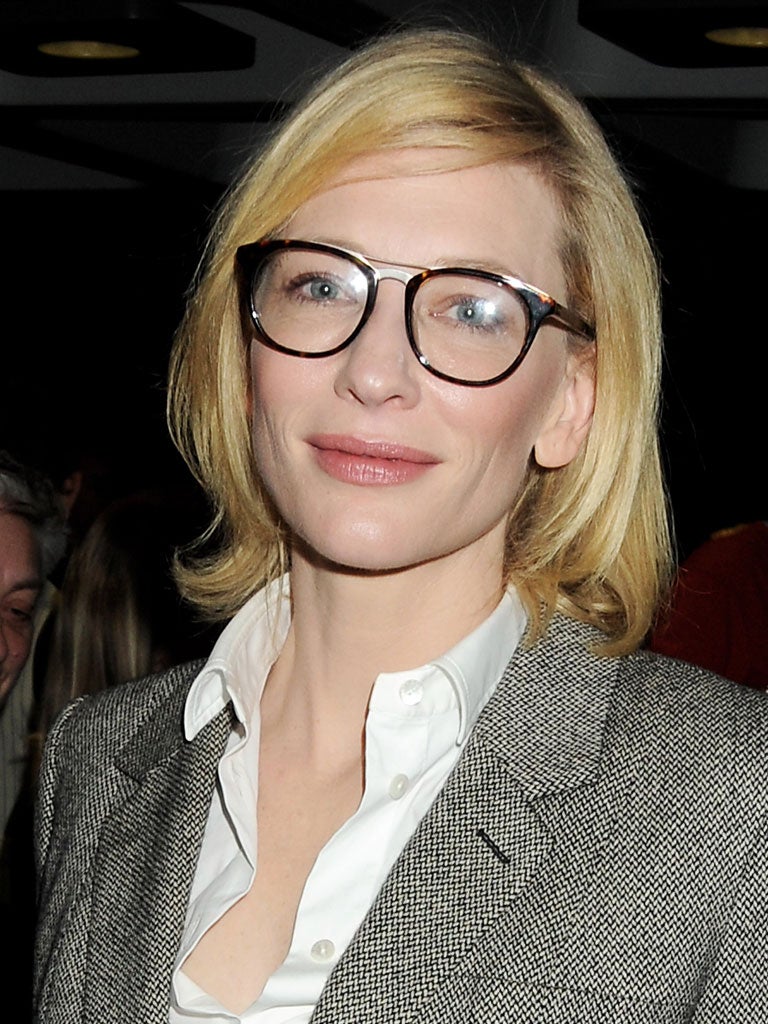First Night: Big and Small (Gross und Klein), Barbican, London
Magnificent Blanchett draws in the crowds

Your support helps us to tell the story
From reproductive rights to climate change to Big Tech, The Independent is on the ground when the story is developing. Whether it's investigating the financials of Elon Musk's pro-Trump PAC or producing our latest documentary, 'The A Word', which shines a light on the American women fighting for reproductive rights, we know how important it is to parse out the facts from the messaging.
At such a critical moment in US history, we need reporters on the ground. Your donation allows us to keep sending journalists to speak to both sides of the story.
The Independent is trusted by Americans across the entire political spectrum. And unlike many other quality news outlets, we choose not to lock Americans out of our reporting and analysis with paywalls. We believe quality journalism should be available to everyone, paid for by those who can afford it.
Your support makes all the difference.Botho Strauss is one of the most widely performed of post-war German dramatists, but he has never been a name to conjure with in Britain.
His work has mainly been seen at tiny venues such as the Gate in Notting Hill.
So why is his 1978 play, Big and Small (Gross und Klein), now packing out the main theatre at the Barbican?
The answer can be summed up in two words: Cate Blanchett. In Benedict Andrews' production for the Sydney Theatre Company (of which she is one of the artistic directors), Blanchett proves she is as luminous and commanding a presence on stage as she is on screen.
Here, she portrays Lotte, a lonely graphic designer who embarks on a surreal odyssey across contemporary Germany in a fruitless search of some form of connection with old friends, an estranged husband, her brother's berserk family – even at one point appearing like a bizarre, uninvited angel on the window sill of a bickering couple who wind up rejecting her intervention.
Progressing in 10, over-protracted sketches, the piece opens in Morocco, where Blanchett's restive Lotte (at odds with her tour group) is reduced to ridiculously raunchy fantasies about two men she can hear outside in the hotel garden whose mundane business-speak (the smartly knowing adaptation is by Martin Crimp) she oversells to herself as "total philosophy".
At one point, mid-rhapsody, she beautifully times the bathetic removal of a cocktail olive pit and the tugging at a rucked-up too-tight skirt.
Establishing a winningly unguarded rapport with the audience, Blanchett manages to create a heroine who is both an open-hearted visionary able to retain a wonder and curiosity about the world, despite all the rebuffs, and a bit of a clown whose hapless antics are performed here with a balletically slapstick flair.
Andrews' finely judged production and Johannes Schütz's spare, elegant designs project just the right quizzically playful mood for a piece that takes us through Alice-like escapades with scale (involving a miniaturised apartment block with its chorus of intercom voices), physicalised satire of paranoid materialism (as in the garden at her brother's mad dentist in-laws', where everything – statuary, barbecue etc – is either chained or bolted in place) and into a rooming house where the isolation of the tenants is signalled as the same door and bits of wall hypnotically reconvene to form identical units.
Blanchett is magnificent throughout, especially in the later stages – at one point, she strips to a spangly gold tutu and wrestles with furious abandonment against an invisible God-figure; at another, she keeps involuntary channelling the deep voice of a deity while chatting to a nerd at a bus stop.
But now that Gross und Klein has been removed from its original Cold War context, some of the character's behaviour (remaining devoted to her beast of a journalist husband, for example) stretches credulity to breaking point, and the piece begins to feel like a portentously puckish tourist trip to the Land of All-Purpose Alienation.
Join our commenting forum
Join thought-provoking conversations, follow other Independent readers and see their replies
Comments